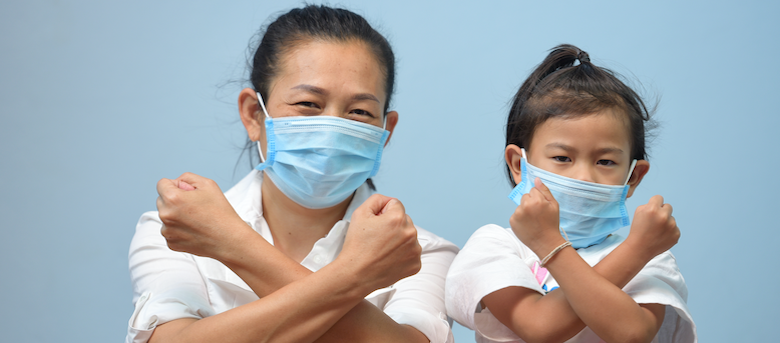According to the CDC, it’s likely that seasonal flu viruses, as well as the novel virus that causes COVID-19, will both spread this fall and winter. While that news is somewhat scary, here are some tips for what we all should be doing this flu season …
- Get a flu shot!
While a regular flu vaccine will not protect against COVID-19, it has MANY other important, even lifesaving, benefits. Flu vaccines have been shown to substantially reduce the risk of seasonal flu illness, hospitalization and death. Getting a flu vaccine/shot this fall will be more important than ever, not only for your own personal health, and that of your family members and loved ones, but also to help conserve health care resources—keeping people out of hospitals and doctor offices where those resources are needed.
- Wash your hands!
The CDC recommends to wash your hands often with soap and water for at least 20 seconds. It’s especially important to wash:
Before eating or preparing food
Before touching your face
After using the restroom
After leaving a public place
After blowing your nose, coughing, or sneezing
After handling your mask
After changing a diaper
After caring for someone sick
After touching animals or pets
The CDC also recommends that if soap and water are not readily available, use a hand sanitizer that contains at least 60% alcohol. Cover all surfaces of your hands and rub them together until they feel completely dry.
- Wear a mask!
The mask is meant to protect other people in case you are infected. Remember that you could spread COVID-19 to others even if you do not feel sick. Cloth masks with folds seem to be very effective.
4. Continue Social Distancing!
Continue to keep about 6 feet between yourself and others. This step requires attention and diligence. And remember that the mask is NOT a substitute for social distancing.
- Stay home when you are sick!
This seems like common sense, but if at all possible, stay home from work, school, and errands when you are sick. This strategy will help you to get the rest you need and prevent spreading your illness to others.
- Keep things clean.
Regularly clean and disinfect frequently touched surfaces at home, work or school, especially when someone is sick, using over-the-counter disinfectants or soap and water.
- Practice other good health habits.

Get plenty of sleep, be physically active, drink plenty of fluids, and eat healthy food.
Be safe and healthy. We CARE about you!
Amy Pierce, RN, BSN,CMC

